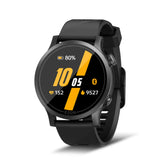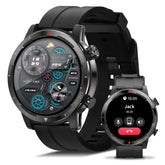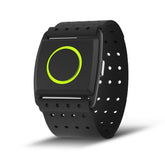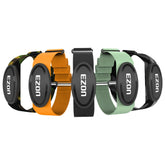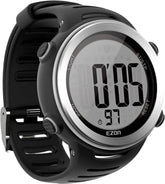Choosing the Best GPS Running Watch: Battery Life and Accuracy
For runners, a GPS running watch is more than a training tool—it’s a companion that tracks every mile, pace, and heartbeat. When selecting the best GPS watch for running, two factors stand out as game-changers: battery life and accuracy. These features determine whether your watch keeps up with your longest runs and provides reliable data to fuel your progress. In this guide, we’ll break down why these elements matter and how to choose a watch that balances both seamlessly.
The Importance of Battery Life in a GPS Running Watch
Nothing disrupts a training session like a dead battery mid-run. Whether you’re tackling a marathon, ultra-distance event, or simply logging daily miles, a watch with lasting power ensures you never miss a beat (or a data point). Here’s what to consider:
1. Training Duration vs. Battery Performance
- Short Runs (1–2 hours): A watch with 8–12 hours of GPS battery life might suffice for daily workouts.
- Long Runs/Marathons (3–5 hours): Look for 15–20+ hours of GPS mode battery to cover full races without charging.
- Ultras/Endurance Events (6+ hours): Opt for watches boasting 30+ hours in GPS mode, or those with power-saving features to extend usage.
2. Power-Saving Modes
Many GPS running watch with longest battery life offer customizable settings like “UltraTrac” or “Battery Saver,” which reduce GPS sampling rate or disable non-essential features (e.g., smart notifications) to stretch battery life. Test these modes during training to find the sweet spot between data accuracy and endurance.
3. Daily Use vs. Training Mode
A watch that lasts 7–14 days in smartwatch mode (for everyday activity tracking) but drops to 10 hours in GPS mode might work for casual runners, while serious athletes need consistency across all usage scenarios.
Why Accuracy Matters: GPS and Heart Rate Tracking
1. GPS Accuracy: Mapping Your Route with Precision
Inaccurate GPS can lead to skewed distance, pace, and elevation data, undermining your training insights. Key factors affecting GPS accuracy include:
- Satellite Signal Reception: Watches with multi-band GPS (supporting GPS, GLONASS, Galileo, etc.) lock onto signals faster and maintain accuracy in challenging environments (e.g., urban canyons, dense forests).
- Antenna Design: A well-engineered antenna ensures strong signal reception, even when your arm is in motion.
- Firmware Updates: Regular software updates can improve GPS algorithms, so choose brands committed to ongoing optimization.
2. Wrist Heart Rate Monitor Accuracy
A reliable accuracy of wrist heart rate monitor is crucial for pacing workouts and measuring recovery. Look for watches with:
- Advanced Sensors: Optical sensors with multiple LEDs (red, green, or infrared) that adapt to skin tone and movement, reducing interference from arm swing or sweat.
- ECG-Compatible Models: Some watches offer electrocardiogram (ECG) functionality for clinical-grade heart rate readings during rest or intense efforts.
- Calibration Options: The ability to sync with a chest strap for occasional accuracy checks, especially during high-intensity intervals where wrist data might lag.
Key Features to Prioritize When Shopping
1. Battery Life Breakdown
- GPS Mode: Check the manufacturer’s stated battery life in GPS-only mode (not combined with other features).
- Recharge Time: A watch that charges from 0–80% in 30 minutes is ideal for quick turnarounds between sessions.
- Battery Health Tracking: Some models show battery degradation over time, helping you plan for replacements.
2. Accuracy Assurance
- Third-Party Testing: Look for reviews or independent tests (e.g., DC Rainmaker, Runner’s World) that compare GPS and heart rate accuracy across brands.
- User Customization: Adjustable settings like GPS frequency (1-second vs. 5-second intervals) let you balance precision with battery life.
- Signal Strength Indicators: Real-time feedback on satellite connection quality ensures you start runs with a strong signal.
3. Additional Features That Complement Performance
- Route Planning: Pre-loaded maps or the ability to create courses directly on the watch.
- Pace Alerts: Audible or vibrational cues to keep you on target during tempo runs or race pace efforts.
- Weather Resistance: Water ratings (e.g., 5ATM, 10ATM) for outdoor runs in any conditions.
EZON’s GPS Running Watch Collection: Where Battery and Accuracy Shine
- Long-Lasting Power: Models with up to 40 hours of GPS battery life, perfect for ultra-marathons and multi-day adventures.
- Multi-Band GPS: Precise route tracking across mountains, cities, and open trails, with rapid satellite acquisition.
- Advanced Heart Rate Technology: ECG-based wrist sensors that rival chest straps in accuracy, even during high-intensity sprints.
Pair these with EZON’s heart rate series for deep recovery insights, and you have a toolset designed to elevate every run.
Make the Right Choice for Your Running Goals
Whether you’re a casual jogger or a competitive athlete, the best GPS watch for running should align with your training volume and environmental needs. Prioritize battery life for endurance events, demand accuracy for pace-sensitive workouts, and don’t overlook user-friendly features that enhance your experience.
Invest in a watch that grows with your goals—one that tracks every mile with precision and stays powered through your longest, toughest runs.
